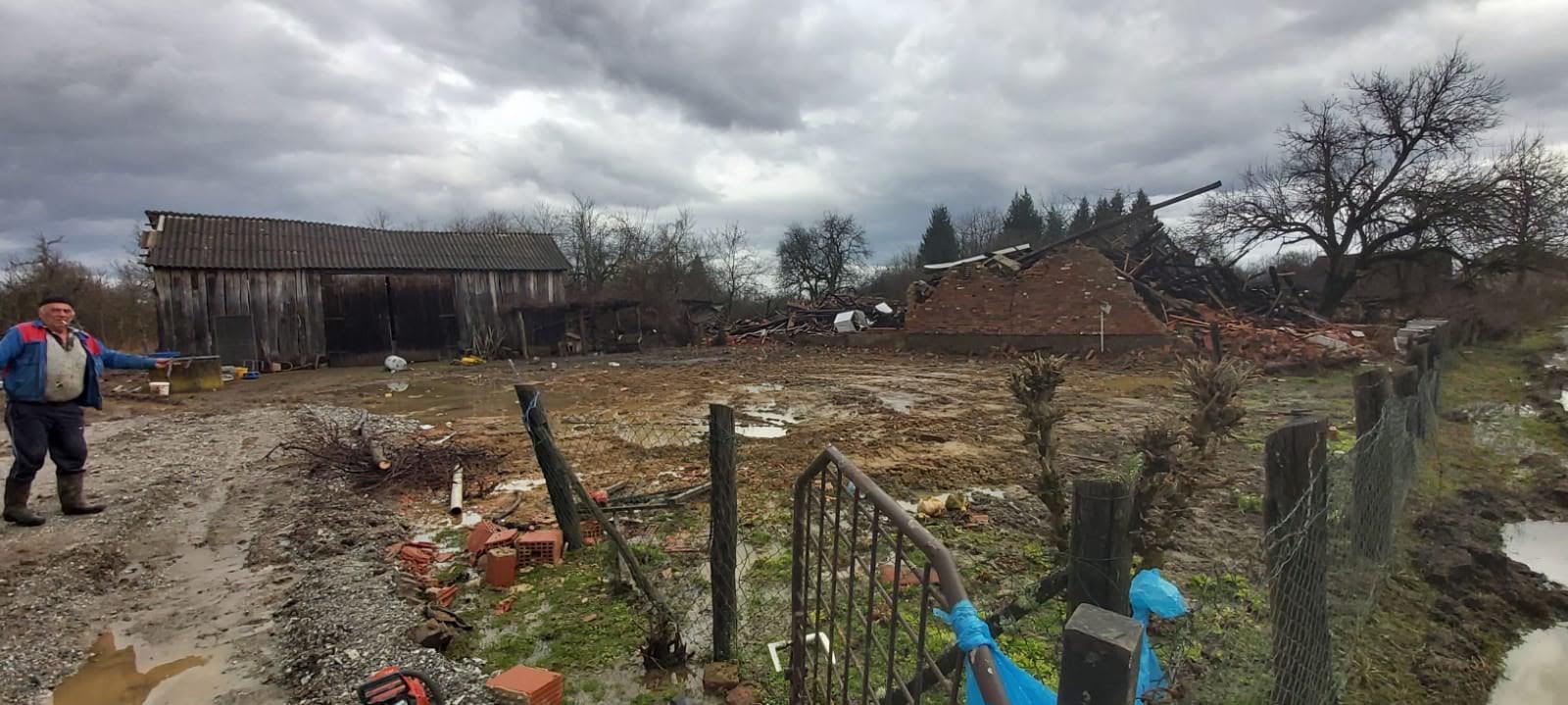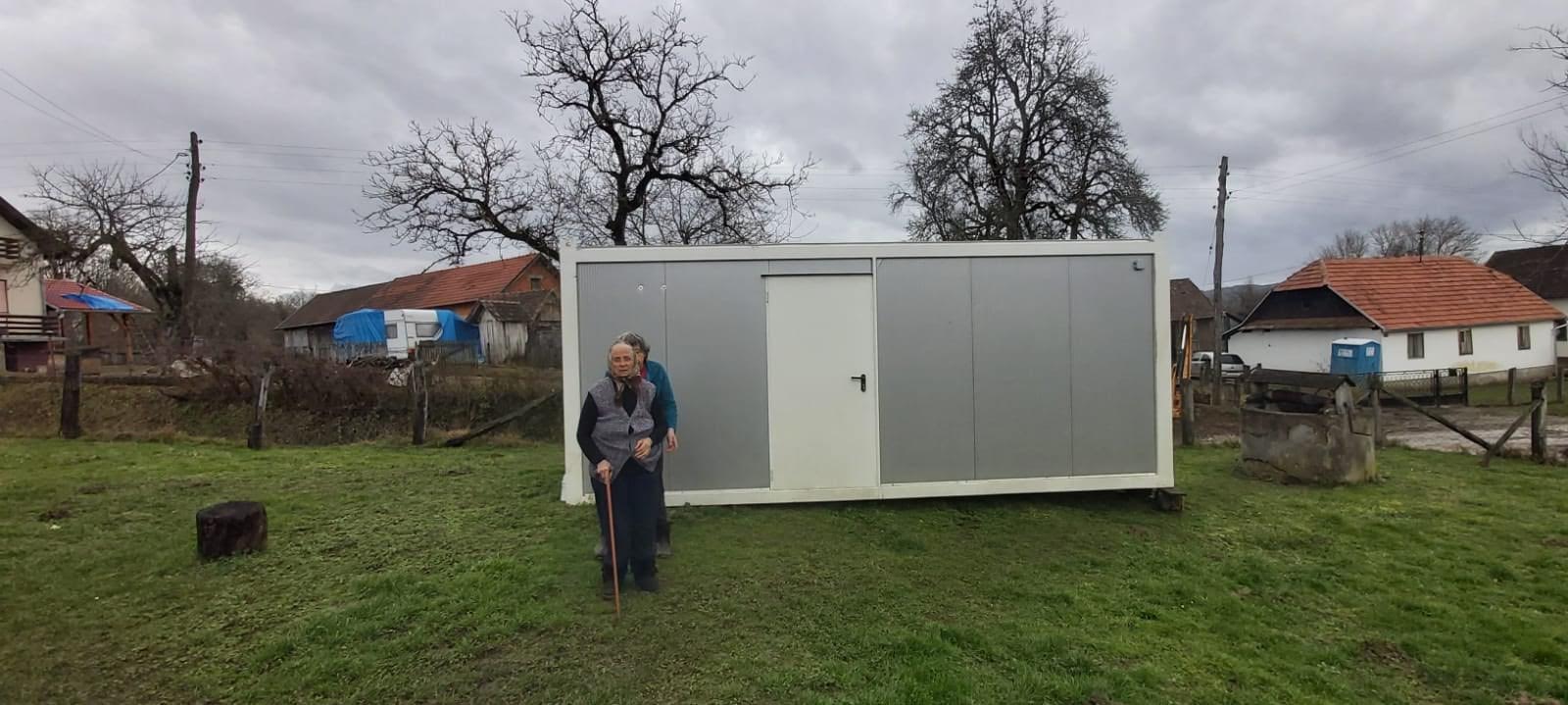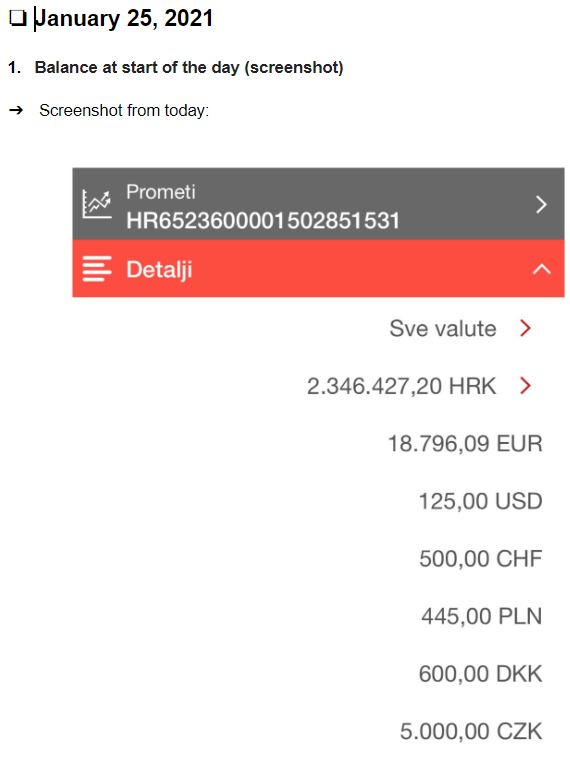Milanović Speaks With Representatives of Končar Electrical Industry
ZAGREB, 25 January, 2021 - President Zoran Milanović on Monday received representatives of the Končar Electrical Industry Group, on the occasion of the company's 100th anniversary, the President's Office said in a press release.
The President of Končar's Management Board, Gordan Kolak, presented the members of the new management board to President Milanović, as well as the current business operations and the existing business activities and development plans of the group, which consists of 14 companies.
Representatives of Končar said that the company's focus in the future would be on electrical energy and on increasing exports, which already make up nearly 60% of total revenues.
As one of Croatia's largest exporters, Končar is planning to export mostly to Germany, Sweden, Austria, Latvia, Hungary, North Macedonia and the UAE.
At today's meeting, it was said that professional and educated employees were important for Končar's development and successful competition.
The company currently has 3,500 employees.
As the biggest business successes in 2020, the company's representatives mentioned the production of transformers for substations for a buyer from the USA, the production of low-floor trams for a buyer from Latvia, the construction of the biggest solar power plant in Croatia on the island of Vis, and the continued production of electric trains for the HŽ Passenger Transport company, the press release said.
Earthquake Donations in Action: Croatian Entrepreneurs (UGP) Fund Report, January 25
January 25, 2021 - Transparent donations getting to the people who need them most are essential in emergency response. TCN follows the Voice of Entrepreneurs Glas Poduzetnika (UGP) fund to report on the realities on the ground.
The donations are pouring in from all over the world to help the victims of the earthquakes in Petrinja, Glina and Sisak, donations which have been gratefully received and which are making a difference.

As I wrote previously, many people have contacted us at TCN asking for advice on the best place to send money. We published a list a few days ago, but I was really happy to see one more fund set up a couple of ago, from Udruga Glas Poduzetnika, or Voice of Entrepreneurs, which is a growing force for reform and change in Croatia. Run by people who want to see an end to corruption and needless red tape, I was sure that their efforts to help their fellow citizens in crisis would be transparent, dynamic, focused and effective, with all money donated going to the people who needed it most. And so it proved, which is why I am now directing anyone looking for a place to donate to UGP, as I explained a few days ago.

UGP co-founder Drazen Orescanin was kind enough to give me an in-depth interview yesterday on the focus, plans and activities of the UGP fund, and it was great to hear that 100% of the money donated will go to help those who need it most.
In order to provide more transparent donation information, we agreed to publish a daily report of the fund's activities, finances and purchases. As resources and time allow, this will be a daily feature, and you can track progress here.
Daily activities
On Saturday, we delivered two housing containers to the family of Milan Bjelan and Jovanka Demonja. Now, families can be safe while they await for the renovation of their houses. There are still two more housing containers that we have to deliver in the following days.
What's next?
In the following weeks we will work on the project of the first UGP houses and on the development of the “Center for New Life” - residential/business container settlement in Petrinja. UGP is working closely with volunteers from Sisak-Moslavina county to find the best solutions for the renewal of the county.
Information in English for donations, both for donations from Croatia and abroad.
For the latest news on UGP, follow the dedicated TCN section.
For the latest information on the earthquake emergency, follow the dedicated TCN section.
Petrinja Quake to Bring Into Question Nuclear Waste Disposal Site at Trgovska Gora?
ZAGREB, 25 January, 2021 - The devastating earthquake that hit Sisak-Moslavina County and the town of Petrinja on 29 December serves as a warning of how much that area is prone to earthquakes and plans for the construction of a radioactive waste disposal site in that part of Croatia should be reconsidered.
This was stated during a debate in the Bosnia and Herzegovina parliament on Monday, with Snježana Cvijić Amulić, who is the Republika Srpska Seismological Institute's official in charge of observational seismology, said that the energy released by the earthquake that struck Petrinja was such that the existing projections of seismic activity would have to be revised both on the Croatian and the Bosnian side of the border.
"We can no longer talk about the maximum eight but the maximum nine degrees on the Mercalli scale (in) the most critical seismic location," Cvijić Amulić said during the debate, organised by the Greens parliamentary group.
The debate was yet another event held as part of a campaign in Bosnia and Herzegovina geared towards preventing the construction of the radioactive waste disposal site at Trgovska Gora in Dvor municipality, near the border with Bosnia and Herzegovina.
The underground storage facilities that are part of the former Čerkezovac barracks should be repurposed for the storage of low and medium radioactive waste.
As of 2020 the management of the former barracks has been within the remit of the Croatian Fund for financing the decommissioning of the Krško Nuclear Power Plant (NEK) and the disposal of NEK radioactive waste and spent nuclear fuel.
That fund has been tasked with determining if the location is suitable for that purpose by making an environmental impact study, to include geological, geohydrological, geomorphological, ecological, seismological and other exploratory activities.
Only if the research shows that the project will not have a negative impact on the environment will the procedure be launched to obtain a building permit.
The Croatian towns of Dvor and Petrinja, too, have opposed the project.
BiH Foreign Trade and Economy Minister Staša Košarac said today that in the worst-case scenario his country could seek international arbitration.
HNB Governor Boris Vujčić Winner of the 2021 Lamfalussy Award
ZAGREB, 25 January, 2021 - The Executive Board of the Central Bank of Hungary (MNB) has decided to give the 2021 Lamfalussy Award, named after the late Baron Alexandre Lamfalussy, the "father" of the euro, to Croatian National Bank (HNB) Governor Boris Vujčić.
The MNB Executive Board said it wanted to acknowledge Vujčić's achievements as HNB Governor, namely the reform of Croatia's monetary policy that had enabled the stability of the kuna in relation to the euro, which led to Croatia's accession to the European Exchange Rate Mechanism II (ERM II) last summer.
The MNB Executive Board also cited Vujčić's role in organising the Dubrovnik Economic Conference, which is attended every year by renowned economists and creators of monetary policies from around the world.
Vujčić, the keynote speaker at an online conference on the future of monetary policy after COVID-19 pandemic, thanked the MNB for the award.
Lamfalussy, a Belgian economist and central banker, was born in 1929 in Kapuvár, Hungary. He studied at the Catholic University in Leuven and Nuffield College in Oxford, where he earned a PhD in economics. He took part in the work of the Delors Commission, which laid foundations for the European Economic and Monetary Union, was the first president of the European Monetary Institute and had a prominent role in the establishment of the European Central Bank and in the creation of regulations of the European financial system.
The MNB established the Lamfalussy Award in 2014.
Plenković: Vaccine Diplomacy Has Turned Into Vaccine Hijacking
ZAGREB, 25 January, 2021 - Prime Minister Andrej Plenković said on Monday that the COVID vaccine diplomacy was turning into vaccine hijacking, adding that a joint EU lawsuit against vaccine manufacturers is possible if they do not meet contract obligations.
Speaking to the press, Plenković said that the European Council adopted a firm stance on Thursday that the deadline should be respected.
Some countries are paying more per dose than what the EU paid, he said, adding that that is not part of the agreement.
The prime minister said that Croatia had not yet turned towards other vaccines because the agreement was that we EU member states do not contact the manufacturers themselves.
"Once that happens, there is no joint agreement. The joint agreement must ensure that the entire at-risk population is covered by the summer, that is most important," he said.
Italy is preparing a lawsuit against Pfizer, and Plenković thinks that will be a joint activity at the EU level, adding that the Commission signed the agreement "on our behalf."
Asked whether the European Union will enter into new negotiations with the manufacturers and offer a higher price, like some countries are doing, he said he did not see the logic behind such a move.
"They should be paying penalties to us and not vice versa," the prime minister said.
I think we will provide doses for second shot
The prime minister thinks that Croatia will provide the doses necessary to administer the second shot to people who have been vaccinated. "You've heard the epidemiologists, the deadline is 21 days... There will be no danger that someone who received the first shot doesn't receive the second one in time," he said.
As for politicians, he said there were fewer than a hundred at the national level that had been vaccinated, adding that the government has concluded that it is good to vaccinate ministers who have not been infected with coronavirus.
Asked about the relaxation of epidemiological measures and the possibility that cafes and restaurant reopen in February, Plenković said that those matters were discussed in yesterday's meeting.
At the EU level, there is currently great caution due to the new strains of the virus. The vaccination dynamic has changed due to delivery slowing down, which is another reason for caution, he said.
"The figures are encouraging, the situation is more favourable than usual, but those are not ideal circumstances," the prime minister said.
"After yesterday's discussion we think that the situation is challenging," Plenković said.
Asked whether children will return to schools at the beginning of February, he said that the national COVID-19 crisis management team would explain everything at its press conference today.
Trio of Croatian MMA Stars in Action this Saturday at KSW 58
January 25, 2021 - KSW's first event of 2021 takes place this Saturday, January 30, in Lodz, Poland, and will feature a trio of Croatian MMA stars.
Aleksandar Rakas (16-7) is back and will finally make his long-awaited promotional debut this weekend. The Team Cro Cop fighter was originally scheduled to compete at KSW 51 in Zagreb at the end of 2019. However, an unfortunate late injury forced him from that card, and he has not been in action since. After representing Croatia worldwide in MMA, Rakas will now make the walk into the KSW Arena this Saturday against Poland's Michal Michalski (8-4) in a potential 'fight of the night.'
Making his second appearance in KSW will be Francisco 'Croata' Barrio (7-2). The Croatian-Argentinian is a Pan Am wrestling medalist and almost qualified for the Olympics before switching to MMA. Training out of ATT Zagreb, the 31-year-old stepped in on late notice at KSW 56 last November and, despite being out of his weight category, pushed the undefeated Mateusz Legierski the distance in a hard-fought decision loss. Now Barrio is back in his natural weight class and meets Bartłomiej Kopera (9-6) in an important fight for both athletes.

Finally, Pula's Daniel Bazant (4-1) will make his KSW debut this Saturday. A student of Croatian MMA legend Zelg Galešić, Bazant has the biggest opportunity of his young career this Saturday when he faces the undefeated Robert Ruchała (4-0).

Croatian fans can watch KSW 58 live this Saturday on RTL (please check local listings) and online on https://kswtv.com/ and the KSW App available now on iOS & Android.
KSW 58 will see undefeated French sensation Salahdine Parnasse (14-0-1) defend his KSW featherweight title against exciting Brazilian Daniel Torres (11-4) in the main event, while Olympic gold medalist in weightlifting Szymon Kolecki (8-1) meets German veteran Martin Zawada (29-15-1) in the co-main.
KSW 58 Fight Card
Main Event
Featherweight Title
Champion Salahdine Parnasse (14-0-1) vs. Daniel Torres (11-4)
Co-Main Event
Light Heavyweight
Szymon Kolecki (8-1) vs. Martin Zawada (29-15-1)
Welterweight
Michal Michalski (8-4) vs. Aleksandar Rakas (16-7)
Welterweight
Shamil Musaev (14-0) vs. Uroš Jurišič (11-0)
Heavyweight
Michal Andryszak (21-9) vs. Guto inocente (8-5)
Bantamweight
Pawel Politylo (5-2) vs. David Martinik (4-1)
Catchweight 150lb/68kg
Robert Ruchała (4-0) vs. Daniel Bazant (4-1)
Lightweight
Bartłomiej Kopera (9-6) vs. Francisco Barrio (7-2)
To read more about sport in Croatia, follow TCN’s dedicated page.
PM: Calls for Reporting Quake Damage to Public Buildings This Week
ZAGREB, 25 January, 2021 - Prime Minister Andrej Plenković said on Monday calls would be advertised this week for reporting damage caused to public buildings in the City of Zagreb and Krapina-Zagorje and Zagreb counties from the March 2020 earthquake, for which Croatia has €683 million from the EU Solidarity Fund at its disposal.
He was speaking to the press after a meeting of the interdepartmental working group monitoring the execution of EU Solidarity Fund grants earmarked for post-earthquake reconstruction.
The ministries of culture, science and education, and health as well as the City of Zagreb have prepared the public calls, which will be verified by the Physical Planning, Construction and State Assets Ministry in the next two days.
"They will be advertised this week so that concrete applications for documentation can be prepared for projects and the final absorption of the €683 million at our disposal," said Plenković.
The calls pertain to damage sustained by cultural heritage buildings and, in the City of Zagreb, to the road and water-supply infrastructure, schools and hospitals.
The same will apply to Krapina-Zagorje and Zagreb counties, Plenković said, adding that the public calls would not pertain to damage caused by the 29 December earthquake that struck central Croatia.
He said "a new damage estimate is being done" for Sisak-Moslavina, Karlovac and Zagreb counties following the December quake. "A new application will be made and there will be new funds."
EU funds available until June 2020
Plenković said Croatia was not late in absorbing EU funds and that he hoped "there will be that many applications that the funds will be overbooked."
"€683 million certainly isn't enough for all the buildings and projects that will be submitted and it is the job of the administration and all those who are participating to spend the money," he said, adding that he was confident all the funds at Croatia's disposal until June 2022 would be absorbed.
"I as prime minister issue orders that all done be done. And we will make sure that it is."
As for the people complaining they have been waiting for post-quake reconstruction for ten months now, Plenković said he did not think reconstruction was late.
"I think we put everything into legislative frameworks as should be, all procedures and institutions. We have always said the process will take a long time. A ten-second earthquake is a minimum ten years of reconstruction... Everything must be in line with the rules and transparent."
Plenković said the Construction Ministry had drawn up, in cooperation with other departments, a sort of guide to simplify the procedure for applying for reconstruction.
He said more than HRK 74 million had been paid to date into a fund for helping the City of Petrinja after the December earthquake. "The Finance Ministry and the Construction Ministry have the job of regulating that so that spending that money is useful, quick, transparent and effective for those who need it the most."
Božinović: There Will Be No Major Relaxation of Epidemiological Restrictions
ZAGREB, 25 January, 2021 - The national COVID-19 response team is considering the relaxation of the ban on gatherings as of February 1 but there will be no major relaxing of epidemiological restrictions, the team's head, Minister of the Interior Davor Božinović said on Monday, ahead of the adoption of a new set of measures.
"There will be no complete lockdown in Croatia as in some other European countries but there won't be any major relaxation of the restrictions either. We need time to see what happens with the new virus strains," Božinović said.
The current restrictions are in force until the end of this week and before they expire, a new set of measures will be made known, with three restrictions regarding commerce, borders and public transportation likely to be extended, while the relaxation of the ban on gatherings is being discussed the most.
"In the current situation, there is not much room for a strategy of major relaxation of the restrictions. The worst thing would be to open something suddenly and then to have to close it down again," he said, noting that statistics on the number of new infections were better and better but that those number were not insignificant.
Future decisions will be impacted by the spread of the new virus strains which have already appeared in Croatia's neigbourhood, by the slowing down of the vaccination process and the fact that we are still in the winter period, he added.
As for plans by cafe and restaurants owners to stage a protest against anti-epidemic measures, Božinović said that protests were a democratic instrument but that he did not know against whom and what they would protest as restrictions had not been introduced with the intention of making someone's life harder.
"We all hope that as the number of new infections declines and vaccination proceeds some kind of normal life will be restored but it is clear that it won't happen tomorrow," he said.
Markotić: We can't be sure mutated viruses are not already in Croatia
The head of Zagreb's Dr Fran Mihaljević hospital for infectious diseases, Alemka Markotić, said that the situation regarding virus mutation was being seriously followed and that one could not be absolutely sure that the mutated viruses had not already appeared in Croatia.
"There are for the time being no hotspots with an extreme increase in the number of new infections, which is an indirect indicator that the mutated virus, even if it has arrived in Croatia, is not replicating significantly. There will be more mutations in the future but they need not necessarily be bad for humans. Mutations more often harm the virus than they increase its contagiousness. The situation will be followed," said Markotić, noting that existing PCR tests can detect the British virus strain.
Capak: Croatia will not engage in bilateral talks with vaccine producers
Croatian Public Health Institute (HZJZ) head Krunoslav Capak said that Croatia was registering a 20% decrease in the number of new infections in the last seven days compared to the week before.
A total of 69,984 persons have been vaccinated and 11,907 have been revaccinated, he said.
For those who need a second shot, vaccination will be postponed for a week due to lack of the vaccine but that will not affect the quality of vaccination or immunity as the second shot can be received up to 42 days after the first one, he said.
He noted that Croatia did not plan to hold bilateral talks with vaccine producers as a common approach had been agreed at EU level but stressed that in the next four weeks Croatia would obtain 14 fewer boxes of the vaccine or 13,650 fewer doses.
Moderna should deliver 4,800 doses on Sunday, and in early February 10,800 doses should arrive for which there is no information that they could be delayed, Capak said.
"AstraZeneca has been instructed by the European Commission today to respect the deadlines and the agreed quantities better, so we hope that after today's videoconference we will receive good news. The first delivery should be in mid-February, of 44,000 doses," he said.
"We are thinking about what to do if small deliveries continue but we believe that larger quantities will arrive. Much of the effort is now directed at making the pharmaceutical industry change the drastic reduction in vaccine deliveries for all EU countries," he said.
So far 284 suspected side-effects have been reported for the Pfizer vaccine, including 16 allergic reactions requiring administration of drugs and two requiring administration of adrenaline.
There have been 10 reports of side-effects for the Moderna vaccine, and the side-effects have all been mild.
The current 14-day incidence in Croatia is 216 new infections per 100,000 people. It is the highest in Sisak-Moslavina County, with 385.6 cases and the lowest in Istria, with 92.9 new infections per 100,000 people.
About 20 Children With Post-COVID Syndrome in Croatia to Date
ZAGREB, 25 January, 2021 - About 20 cases of children with post-COVID syndrome have been registered in Croatia, the deputy director of Zagreb's Infectious Diseases Hospital, Zoran Barušić, said on Sunday.
Since the start of the epidemic, over 21,600 children under 19 have been infected with coronavirus and more and more have post-COVID syndrome, he told Croatian Television after the death of a 10-year-old boy, the youngest COVID fatality in Croatia.
The boy died at the Infectious Diseases Hospital early on Sunday of multisystem inflammatory syndrome as a result of coronavirus infection.
Multisystem inflammatory syndrome, caused by the SARS-CoV- 2 virus, occurs in children within several days or several weeks of recovery from COVID-19. The syndrome can be mild but also extremely serious, Barušić said, adding that 16 children have been treated for it to date and that four are currently being treated at Zagreb's Infectious Diseases Hospital.
Eight children with multisystem inflammatory syndrome have been treated at Split University Hospital, six with a mild and two with a medium grave clinical picture, said dr. Branka Pulić, adding that all had recovered from COVID and had mild symptoms.
Two children with this rare syndrome have been hospitalised at Rijeka University Hospital.
Research shows that 70% of children with this syndrome require intensive care, 10% who recover have heart damage, and mortality is 1.5%.
Media Outlets Get HRK 10m From State Budget in 2020
ZAGREB, 25 January, 2021 - Media outlets received at least HRK 10 million from the state budget in 2020, with the Styria newspaper publisher and Narodni Radio, Catholic Radio and Extra FM radio receiving the most funding, according to data from a study by the portal Media Daily.
The head of research at Media Daily, Zoran Kovačić, has told Hina that the aim of the analysis was to transparently give information on how much money each media outlet received for the services it performed for a particular ministry, state agency, state office or court.
According to data on national and regional daily newspaper publishers, total revenues were HRK 6.65 million, down 3.53% in real terms compared to 2019. Daily papers received money from 34 state budget-related sources. Six publishers received the largest amount from the State Electoral Commission, and only one from the Agriculture Ministry.
The Hanza Media company received the most money, HRK 2.31 million, followed by Večernji List daily, which received HRK 2.29 million, nearly 15.3% less than in 2019. 24sata, which is part of the Styria media company like Večernji List, received slightly over HRK 750,000 last year. Thus the Styria media company's outlets received more than HRK 3 million from the state, which is the largest amount for a newspaper publisher. In addition to them, Glas Slavonije received nearly HRK 600,000, Novi List about HRK 490,000, while Glas Istre and Zadarski List received much less money from the state -- about HRK 220,000 together.
As for radio broadcasters, Narodni Radio received the most, HRK 598,000, followed by Antena Radio (HRK 495,000), and Catholic Radio (HRK 381,000). The first two radio broadcasters received 86% and 74% less state funding respectively in 2020 than in 2019, while Catholic Radio received 41% more. However, Extra FM was the biggest winner in 2020, as it received HRK 219,000, or 448% more than in 2019, while the AMM (All Market Media) agency received over HRK 125,000, or 557% more than in 2019.
On the other hand, only four national web portals received state funding in 2020, and that was only HRK 61,312. The Dnevno.hr website received slightly more than HRK 25,000, or as much as 548% less than in 2019. Direktno.hr received only HRK 8,000, or 932% less, while Narod.hr did not receive anything. The Index and Telegram web portals, which did not received state funding in 2019, were given HRK 15,500 and 12,817 respectively in 2020.
According to Kovačić, the more money the state gives to media outlets, the more they focus on reporting and the less on research.
He thinks that the reduced funding is a result of Agriculture Ministry's smaller budget, as it spent more money from EU funds in 2019, and of fewer events being organised by media outlets.
Kovačić says that the Media Daily team processed "raw" data obtained from the state treasury.
This study is related to money from the state budget, and it is important to note that media outlets receive money from state-owned and public companies, cities and municipalities, as well as local companies, agencies and tourist boards. In addition, a large number of electronic media outlets receive money from the fund promoting electronic media pluralism and diversity in the amount of 3% of the Croatian Radio and Television licence fee, while print media outlets have benefitted from the VAT rate being reduced to 5%, the study said.



